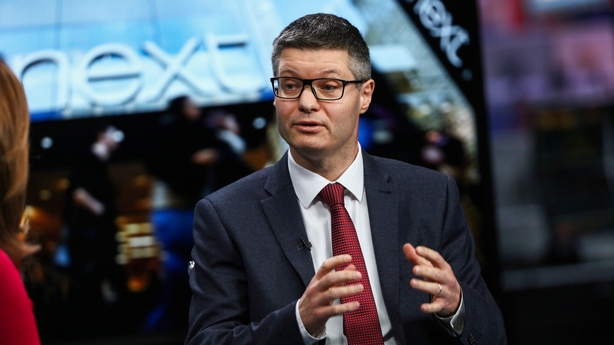Clothing retailer Next edged up its annual profit outlook for the fourth time in six months after a strong Christmas but warned of a slowdown in its home market in its new financial year as tax rises bite.
Next reported a better-than-expected 6% rise in full-price sales for the nine weeks to December 28.
It said it now expects a full year to end-January pretax profit of £1.010 billion, up from its previous guidance of £1.005 billion and the £918m made in 2023/24.
The group cautioned that UK sales growth is likely to slow in its 2025/26 year as social security tax rises introduced in the new Labour government's first budget in October potentially impact prices and employment.
Next has historically been a useful gauge of how UK consumers are faring.
However, its performance in the run-up to Christmas contrasted with industry data from the British Retail Consortium trade body, also published today, showing disappointing overall UK retail sales in the final quarter of last year.
Next said that UK online sales growth of 6.1% came at the expense of its stores, where sales fell 2.1%. It also highlighted an unexpected acceleration in overseas online sales growth to 31.4%.
For its 2025/26 financial year, Next forecast full-price sales growth of 3.5% and pretax profit of £1.046 billion, up 3.6%.
"We believe that UK growth is likely to slow, as employer tax increases, and their potential impact on prices and employment, begin to filter through into the economy," Next said. It also expects growth overseas to moderate.
Next flagged a £67m increase in wage costs and National Insurance contributions in 2025/26 which it said would be offset through a combination of operational efficiencies, other cost savings and a 1% increase in prices on like-for-like goods "which is unwelcome, but still lower than UK general inflation".

Meanwhile, the Next boss said today that Britain's employment market appears to be deteriorating.
Next chief executive Simon Wolfson told Reuters that in the run-up to Christmas, Next saw a 50% year-on-year increase in the number of people applying for jobs per vacancy.
Next employs 40,000 in the UK.
"If you want to find things to worry about in the UK economy, I think employment and prices would be the two things to worry about," he said after Next gave an update on its Christmas trading.
Shares in Next were up 2% in early trading, extending gains over the last year to 15%.

